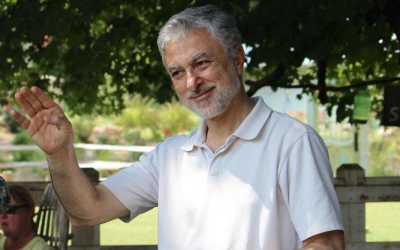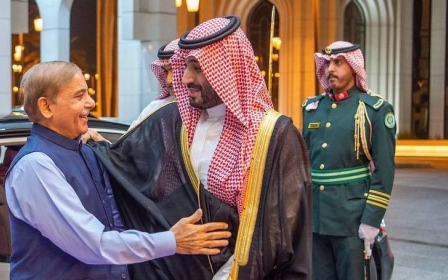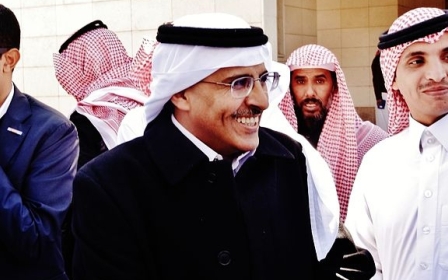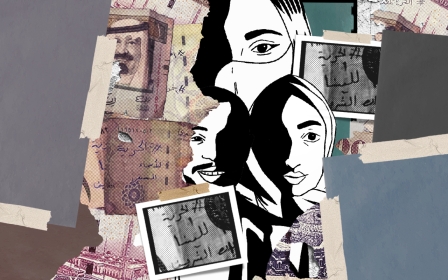'Where's my father?': Prominent Saudi activist's family plead with US to secure his freedom
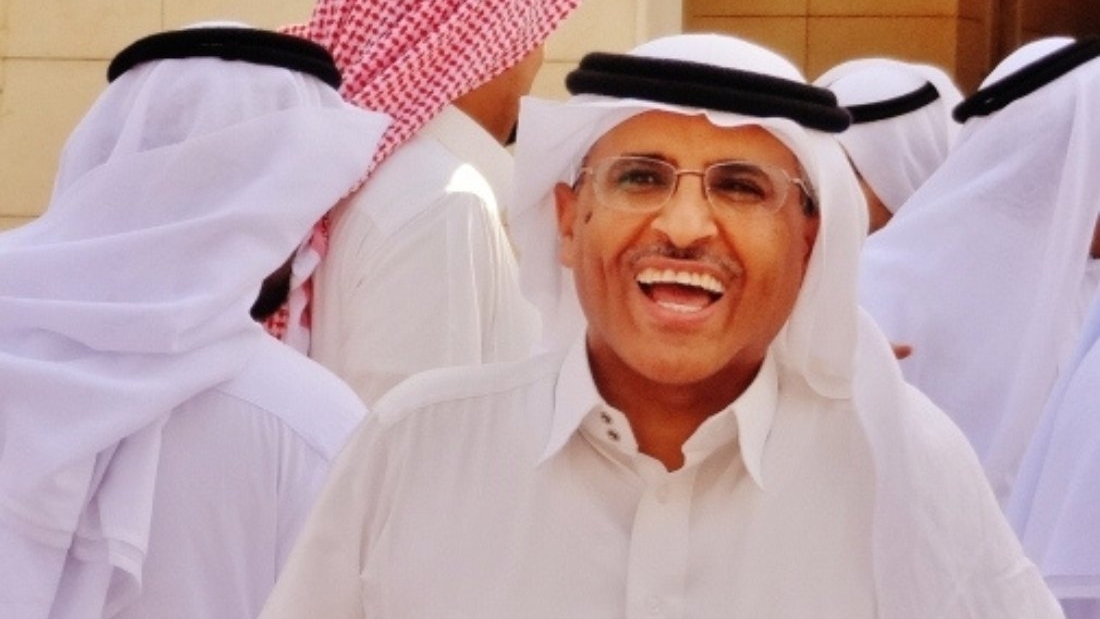
More than four months after his 10-year prison sentence in Saudi Arabia ended without him being released, the family of Mohammed al-Qahtani has posted a public message pleading with the Biden administration for help to secure his freedom.
The video, posted on Friday, comes after months of frustration from the family, which say that the Biden administration is not doing nearly enough to pressure Riyadh into getting Qahtani released. The US State Department was tagged in the video posted to Twitter.
"As a US citizen, I call on the US administration and the international community to help us save my father and to immediately and unconditionally release him," said Omar al-Qahtani, Mohammed's son, in the video.
"Where's my father? Free my father from Saudi prison," Omar added emphatically to conclude the video.
The Qahtani family had been deliberating for weeks about whether or not to publish the video. But after learning from a trusted source that Qahtani was last seen in hospital due to a hunger strike and was being held in solitary confinement, they felt there was no other option.
New MEE newsletter: Jerusalem Dispatch
Sign up to get the latest insights and analysis on Israel-Palestine, alongside Turkey Unpacked and other MEE newsletters
"We've been thinking about this video for a long time," Maha, Mohammed Qahtani's wife, told Middle East Eye.
Maha said she had been in touch with the Biden administration since Qahtani's sentence had ended, but every time she raised the issue of his detention, the State Department would do nothing more than say they were working on the issue but could not make any promises.
'They can make change, total change. But they don't care'
- Maha al-Qahtani
"They're just aware of the situation. They will keep asking and pushing but that's it. No promises," she said. "They can make change, total change. But they don't care."
The State Department told MEE that it was "concerned about human rights activist Mr al-Qahtani's well-being" and that his family has not spoken to him since October, but added nothing further about the detention.
Middle East Eye also reached out to the Saudi embassy in Washington, which did not respond by the time of publication.
The public message appears to signal a break away from the Biden administration's approach to dealing with the detention of Americans abroad.
On the State Department's website, it states under its section on foreign detentions that for families "it is always a good idea to discuss your social media and public statement plans" with US officials.
The reason is that Washington's strategy in dealing with cases of detention is to determine whether it should designate the case as a "wrongful detention" publicly or privately.
"They respond most of the time with things like 'we're aware, we're concerned about the situation'. To be honest with you, there is nothing that has been done. Nothing," Maha said of the US administration.
"You should support human rights, you should support the right, not the wrong. You should stand for what's right, not what's in your interests?"
'It's like we don't exist'
Qahtani, a leading human rights activist in the kingdom, was arrested in 2012 for his role in co-founding the Saudi Civil and Political Rights Association (ACPRA), a now-disbanded organisation. He was charged with creating an unlicenced organisation and criticising state policy, according to the human rights group ALQST.
Along with other members of the group, he was sentenced to 10 years in prison in 2013. When he wasn't released on the day his sentence ended in November 2022, human rights organisations and his family became increasingly concerned about his fate.
"We hold the Saudi government responsible for any harm or damages that has been done physically or mentally [to him]," Omar said in the Twitter post on Friday morning.
In a response to an inquiry from the UN special rapporteur on human rights defenders in January, the Saudi government stated that Qahtani had committed "a number of criminal offences" within the prison at the end of his sentence and is being detained as the case is investigated.
They added that Qahtani "receives the necessary medical care" and that his health conditions are monitored.
But the Qahtani family, which used to speak with him on a daily basis, have not heard from him since October 2022, and have not been given any information from Saudi authorities on Qahtani's status.
"That's not the message that we received. So I don't know what's going on. To be honest with you I don't trust what they say, too," said Maha.
"We're trying to communicate with them, but they just totally ignore us. It's like we are nothing, like we don't exist," she said of Saudi authorities.
US negligence
This is not the first time that Saudi Americans have expressed frustration with the Biden administration over the handling of their relative's detention in the kingdom.
In 2021, the Biden administration was accused of dragging its feet when it came to the disappearance of Syrian-American psychotherapist, Majd Kamalmaz, who is among a small group of US citizens believed to be held by the Syrian government or forces allied with Damascus.
'Speaking up is the solution when it comes to dealing with the kingdom of silence'
- Ibrahim Almadi
"It seems that the Biden administration does not consider Syria to be on the top of their list [of priorities] at this time," Kamalmaz's daughter Maryam told MEE at the time.
Last year, when Saad Almadi was sentenced to 16 years in prison for tweets he had written, his son Ibrahim told the Washington Post that the State Department was being negligent in their approach to the case, including the US embassy in Saudi Arabia not visiting Almadi until six months after his arrest.
Ibrahim told the Post the State Department had told him to not speak publicly about the case, but said that he no longer believed staying quiet would secure his father's freedom.
In March, the charges against Almadi were dropped and he was released from prison but he still remains under a travel ban.
Ibrahim told MEE that when it comes to the many cases of Americans being detained abroad, speaking up in public is the only path left for their desperate families.
"There are plenty of American citizens who are missing their parents due to travel bans or increases in the sentences without proper fair trials," Ibrahim said. "Speaking up is the solution when it comes to dealing with the kingdom of silence."
Middle East Eye delivers independent and unrivalled coverage and analysis of the Middle East, North Africa and beyond. To learn more about republishing this content and the associated fees, please fill out this form. More about MEE can be found here.


